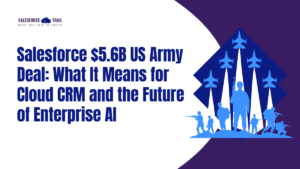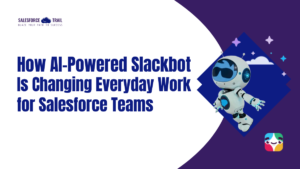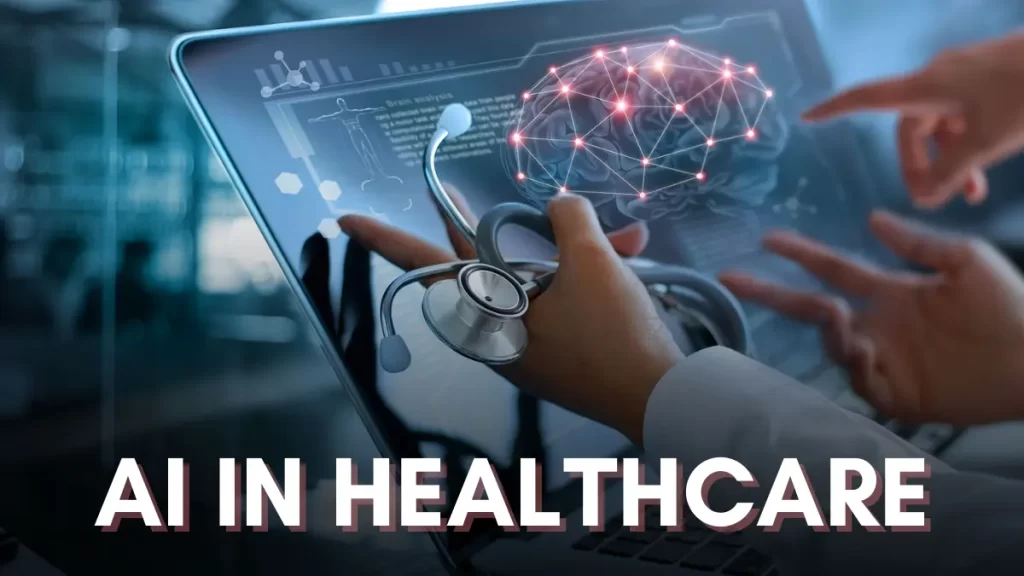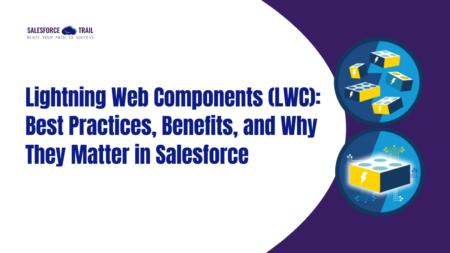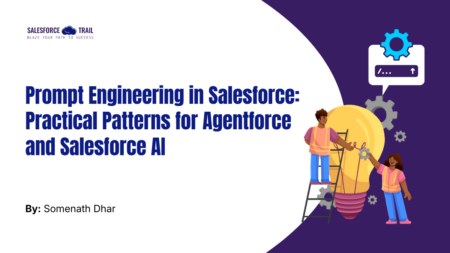Artificial Intelligence (AI) is changing many industries, and healthcare is one of them. Salesforce’s Healthcare CRM (Customer Relationship Management) is a tool that helps doctors, hospitals, and healthcare providers manage patient information and improve patient care. Now, with the help of AI, Salesforce Healthcare CRM can greatly enhance the efficiency and personalization of care.
In this guide, we’ll explain how AI in Salesforce Healthcare CRM works, we will understand its benefits, and how it can help make healthcare easier and better for everyone.
What is AI in Salesforce Healthcare CRM?
Salesforce Healthcare CRM helps doctors and healthcare teams manage patient relationships, medical records, and treatment plans. This system becomes smarter with AI (Artificial Intelligence). AI uses computers to learn from data, make predictions, and give advice. AI can analyze patient data, help doctors make better decisions, and automate everyday tasks in healthcare.
The AI in Salesforce Healthcare CRM is powered by the latest technology such as machine learning (the ability for computers to learn from data) and natural language processing (a method for computers to understand human language). These tools support healthcare providers in providing better care to patients by bringing insights from a trove of data and translating trends.
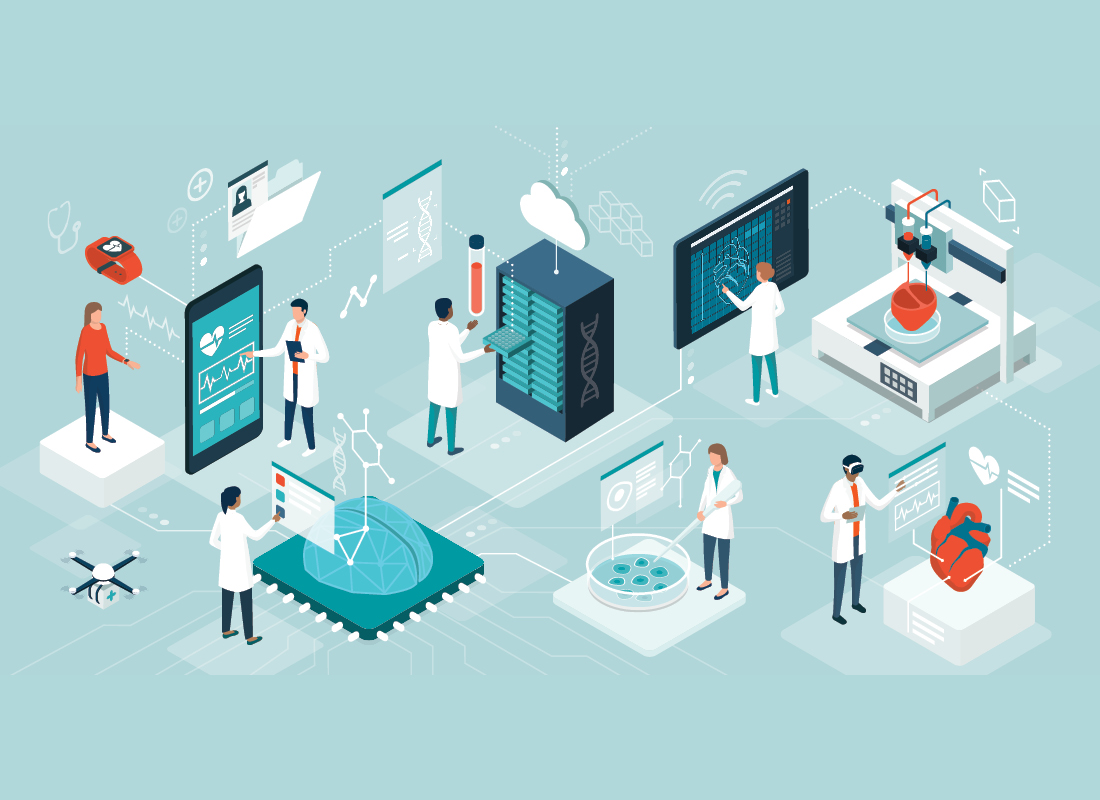
Benefits of AI in Salesforce Healthcare CRM
Personalized Care for Every Patient
AI helps healthcare providers offer personalized care by analyzing patient’s medical history, habits, and needs. For example, AI can suggest the best treatment based on past results for similar patients. This means doctors can give more specific care that fits each patient better.
Improved Care Coordination
In big healthcare settings like hospitals, many teams need to work together. AI helps keep everyone on the same page by automatically scheduling appointments, reminding patients to follow up, and even flagging urgent cases. This ensures patients don’t miss appointments and get the care they need on time.
Predictive Analytics for Smarter Decisions
AI in Salesforce Healthcare CRM can also predict future health problems. For example, it can predict which patients might develop serious conditions based on their current health data. This allows doctors to take action early, preventing the condition from worsening. Predictive analytics also help hospitals plan better.
Automating Routine Tasks
AI can handle many routine tasks like scheduling appointments, sending reminders, or processing patient forms. This means healthcare workers have more time to spend on actual patient care. It also reduces the chance of errors in paperwork, making operations run more smoothly.
Better Patient Engagement
AI-powered tools like chatbots or virtual assistants can answer common patient questions, help schedule appointments, or update patient’s treatment plans. This improves patient satisfaction and ensures they get the answers they need quickly.
How AI Keeps Patient Data Safe
Data security is crucial in healthcare, and AI plays an important role in patient information safety. AI in Salesforce Healthcare CRM has built-in security systems that watch for any strange activity and prevent unauthorized access to patient data.
With AI monitoring systems, healthcare organizations can follow strict data protection rules like HIPAA (Health Insurance Portability and Accountability Act), which helps keep patient data private and secure.
Real-World Examples of AI in Salesforce Healthcare CRM
Virtual Health Assistants
Some healthcare providers use AI-powered virtual assistants to help patients. These assistants can answer simple questions, schedule appointments, or remind patients to take medicines. This reduces the workload on healthcare staff and helps patients get the information they need.
Predicting Disease Outbreaks
AI can look at different health data to predict disease outbreaks. For example, AI tools in Salesforce Healthcare CRM can help spot early signs of flu in a certain area, giving healthcare providers time to prepare.
Patient Monitoring and Alerts
AI can track patients’ health in real-time. If a patient’s vital signs show something concerning the system can alert doctors instantly. This helps healthcare teams respond faster and potentially save lives in emergencies.
What’s Next for AI in Salesforce Healthcare CRM?
AI in healthcare for the future looks promising. AI improves over time, soon it may be able to diagnose diseases, make more precise predictions, detect healthcare frauds, and completely automate some of the tasks in healthcare.
Wearable health devices and apps are only becoming more popular, which will create even more data to work with for AI that will help personalize care.
Final Thoughts
AI in Salesforce Healthcare CRM is changing the way healthcare providers deliver care. AI can help health teams treat patients more individually, organize their care better, anticipate what health issues people will have in the future, and automate routine tasks to make them free up time for direct patient interactions.
As AI continues to grow and develop, it will offer even more powerful tools to help healthcare providers deliver better, more personalized care to their patients. Salesforce Healthcare CRM is helping healthcare enterprises by providing care faster, smarter, and more personalized through the power of AI.
Must Visit Links:-
- Best Salesforce Job Roles for Freshers in 2024: A Complete Guide
- How Best Salesforce Consultants Can Boost Your Business Growth 10X?
- How to Unlock Business Value with Data Cloud and AI
Resources
- [Salesforce Trailhead] (https://trailhead.salesforce.com/)
- [Salesforce Developer] (https://developer.salesforce.com/)
- [Salesforce Success Community] (https://success.salesforce.com/)
For more insights, trends, and news related to Salesforce, stay tuned with Salesforce Trail
Mark Jacobes is a seasoned Salesforce expert, passionate about empowering businesses through innovative CRM solutions. With over 6 years of experience in the Salesforce ecosystem, Mark specializes in Salesforce development, integrations, and digital transformation strategies.
- Mark Jacobeshttps://salesforcetrail.com/author/markjacobes/September 8, 2025
- Mark Jacobeshttps://salesforcetrail.com/author/markjacobes/
- Mark Jacobeshttps://salesforcetrail.com/author/markjacobes/
- Mark Jacobeshttps://salesforcetrail.com/author/markjacobes/

